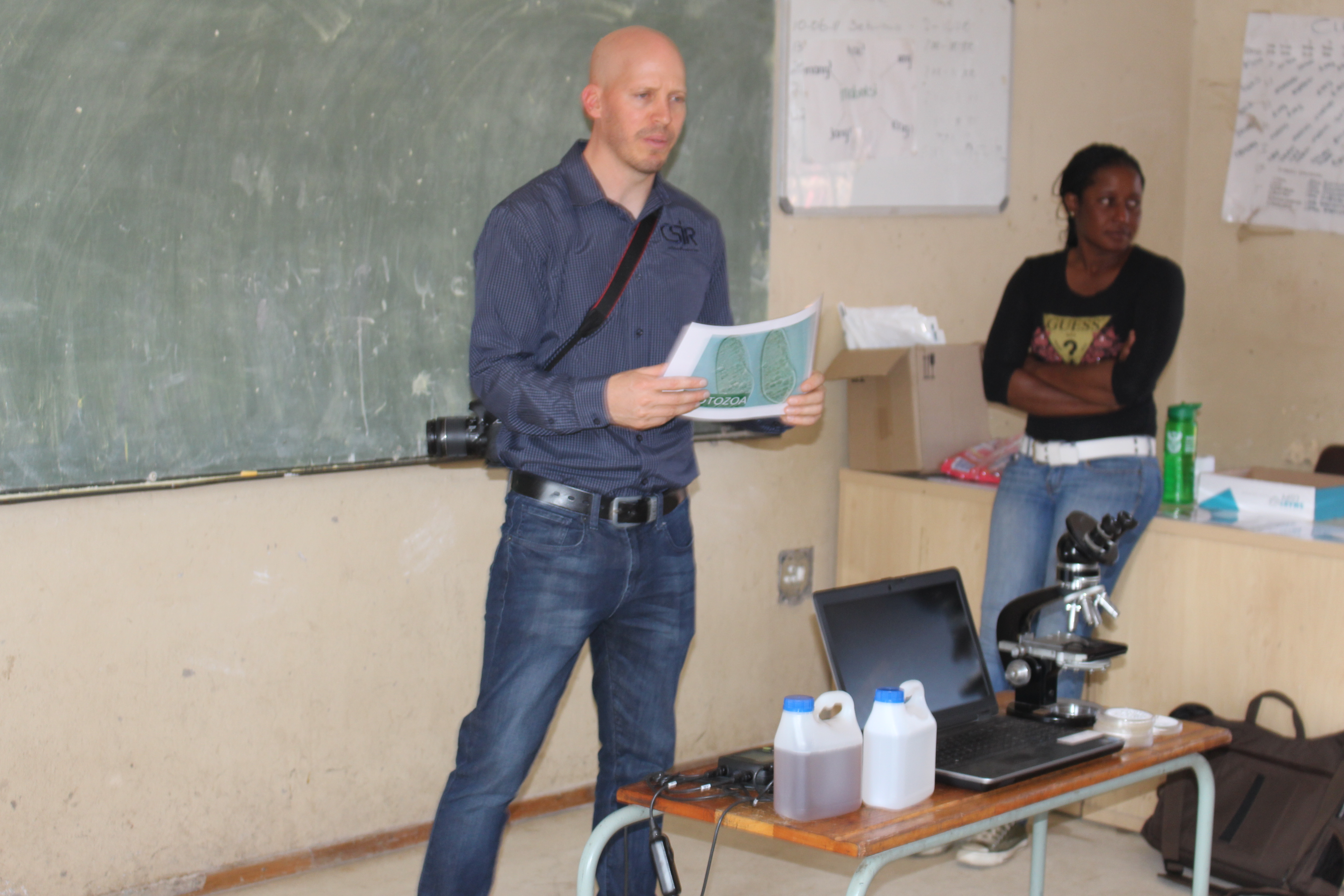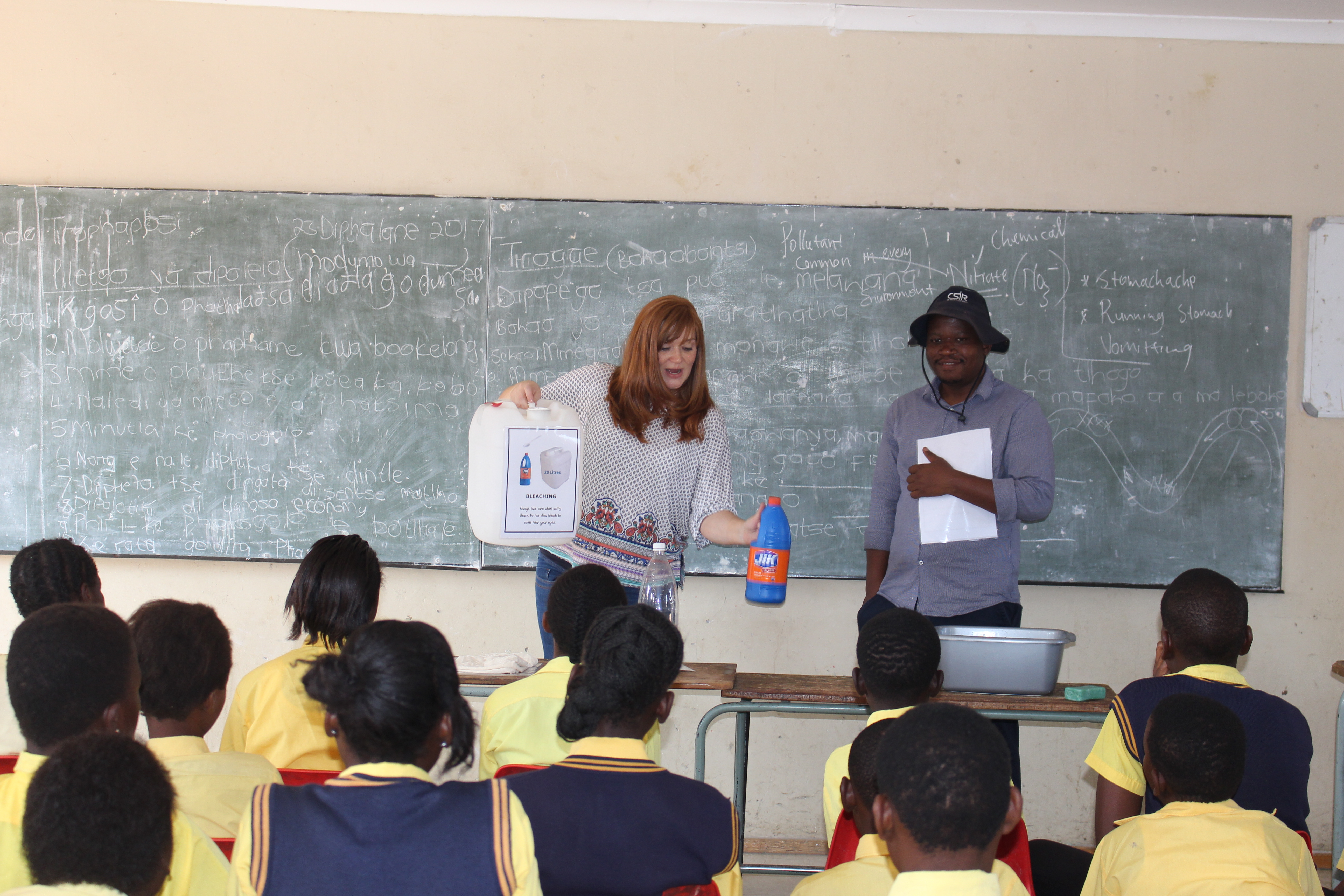Empowering communities about water safety
Researchers from the CSIR are teaching the community of Stinkwater, in Gauteng, how to make their drinking water safe. A study that looks at the quality and use of the community’s groundwater revealed chemical and biological pollutants that may expose consumers to health risks when consuming the untreated groundwater.
Researchers from the CSIR are teaching the community of Stinkwater, in Gauteng, how to make their drinking water safe. A study that looks at the quality and use of the community’s groundwater revealed chemical and biological pollutants that may expose consumers to health risks when consuming the untreated groundwater.
CSIR microbiologists Wouter le Roux and Lisa Schaefer have taken water samples over a two-year period from hand-dug wells in Stinkwater and tested the water quality. Hand-dug wells are the primary source of water in this peri-urban community. Their findings revealed high concentrations of faecal indicator organisms which calls to attention the lack of sanitation and sewerage systems in the area. They also found that nitrate often exceeded safe levels as defined by South African water quality guidelines. High nitrate concentrations can be particularly harmful to infants in the community as they are more susceptible to the effects. However, the study did not end in the laboratory as the findings contribute to the second leg of the research which looks into the socio-cultural aspects of water usage.
CSIR environmental anthropologist Karen Nortje says they combine results from the technical analysis with outreach in order to understand the community’s attitude towards water and water usage. During this process, researchers investigate how people use the resource and determine their level of understanding with regard to water safety. CSIR social scientist Elliot Moyo says by identifying social gatekeepers in the community, they can improve awareness on water safety and community members are educated about the dangers of pollutants in water.
In one such initiative, CSIR researchers visited two primary schools in the Stinkwater area of Leratong and Marotola, to teach learners about the value of clean water and how to ensure that their water is safe.
Through a series of mini exhibitions and games, Grade 6 pupils learnt about the various uses of water, how bacteria and viruses can hide undetected in the water, how to make sure that their water is safe by following one of three simple practices: bleach, boil or sunlight disinfection, and lastly, the value of water as a social commodity. Nortje says the aim of these programmes is knowledge sharing, both between science and society but also between different members of the community. For example, these Grade 6 pupils will spread the messages by teaching their parents and neighbours through demonstrations and word of mouth, ensuring that the research has real social impact.
Le Roux says the final phase of the project will be tailor-making solutions that will serve the community and guide municipalities on how to better serve residents.
The research is funded through a Parliamentary grant to the CSIR.




